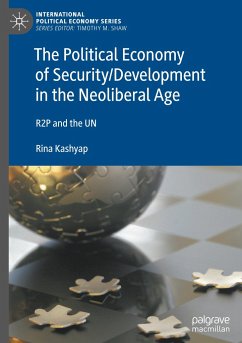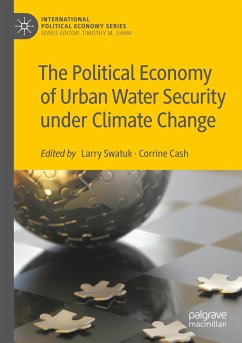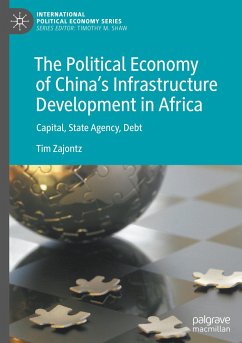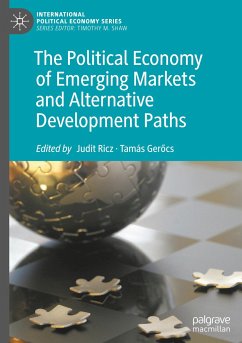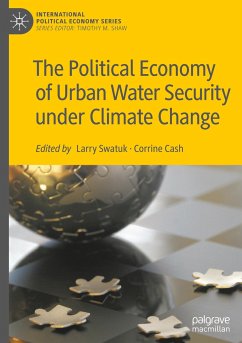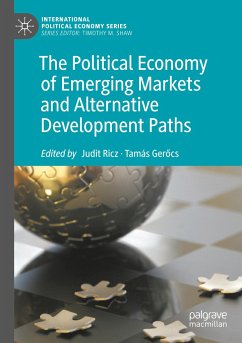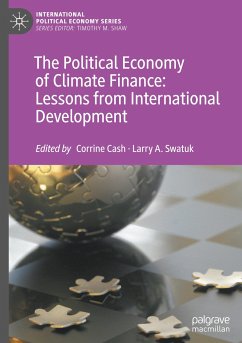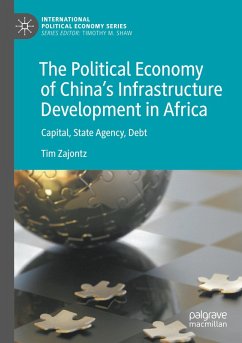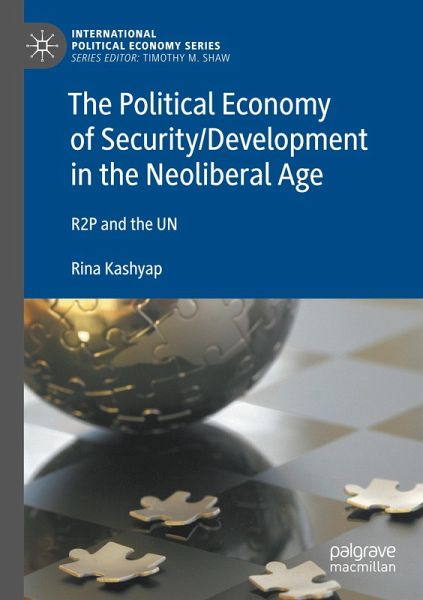
The Political Economy of Security/Development in the Neoliberal Age
R2P and the UN
Versandkostenfrei!
Versandfertig in 6-10 Tagen
98,99 €
inkl. MwSt.
Weitere Ausgaben:

PAYBACK Punkte
49 °P sammeln!
This book builds upon Foucauldian scholarship's compelling interrogations that have contributed to the changing conceptualization of the premises of the discipline of International Relations.This epistemological 'glasnost' facilitates the analysis of the United Nations General Assembly endorsed 'responsibility to protect' (R2P) as not merely a security but a security/development measure. This book unpacks the conditions that on one hand necessitate such measures and on the other hand, allow the subsequent dilution of their radical promise. This framing and analysis of R2P has implications beyo...
This book builds upon Foucauldian scholarship's compelling interrogations that have contributed to the changing conceptualization of the premises of the discipline of International Relations.
This epistemological 'glasnost' facilitates the analysis of the United Nations General Assembly endorsed 'responsibility to protect' (R2P) as not merely a security but a security/development measure. This book unpacks the conditions that on one hand necessitate such measures and on the other hand, allow the subsequent dilution of their radical promise. This framing and analysis of R2P has implications beyond R2P. Increasingly, citizens converted into populations are shepherded by the state to chambers of partial, if not total surrender of civil liberties, standard of living, and well-being. The COVID-19 pandemic accelerated such measures for people in the Global South, who since the inception of the post Second World War order continue to await their turn to be the beneficiary ofdevelopment. The development, initially prescribed by the modernization theorists, echoed subsequently in the 1980s by the good governance promoter-World Bank-continues to elude most in the Global South. Indeed, the region's political and economic instability is often the site that renders as a truism, Foucault's upending of Clausewitz's dictum-'War is the pursuit of politics by other means'-with 'Politics is the pursuit of war by other means.' The thanatopolitics (politics of death) of these 'failed,' 'failing,' or 'flailing,' states, is the reason why their populations are seen to be in frequent need for the operationalization of the international community's 'responsibility to protect.'
This epistemological 'glasnost' facilitates the analysis of the United Nations General Assembly endorsed 'responsibility to protect' (R2P) as not merely a security but a security/development measure. This book unpacks the conditions that on one hand necessitate such measures and on the other hand, allow the subsequent dilution of their radical promise. This framing and analysis of R2P has implications beyond R2P. Increasingly, citizens converted into populations are shepherded by the state to chambers of partial, if not total surrender of civil liberties, standard of living, and well-being. The COVID-19 pandemic accelerated such measures for people in the Global South, who since the inception of the post Second World War order continue to await their turn to be the beneficiary ofdevelopment. The development, initially prescribed by the modernization theorists, echoed subsequently in the 1980s by the good governance promoter-World Bank-continues to elude most in the Global South. Indeed, the region's political and economic instability is often the site that renders as a truism, Foucault's upending of Clausewitz's dictum-'War is the pursuit of politics by other means'-with 'Politics is the pursuit of war by other means.' The thanatopolitics (politics of death) of these 'failed,' 'failing,' or 'flailing,' states, is the reason why their populations are seen to be in frequent need for the operationalization of the international community's 'responsibility to protect.'



